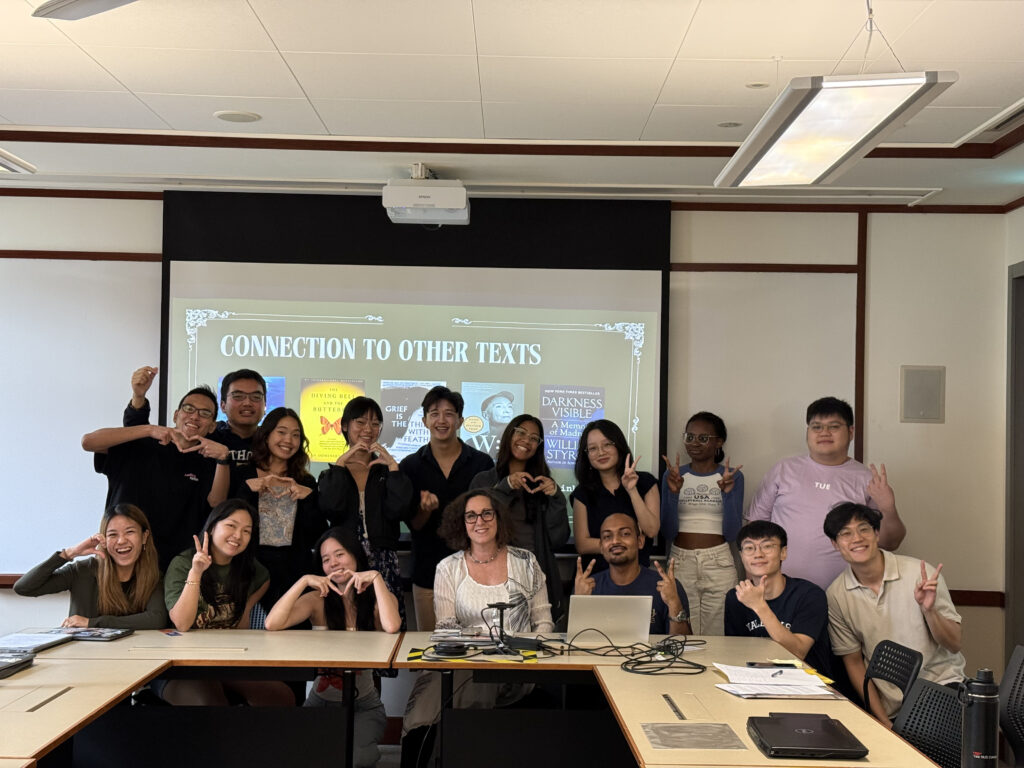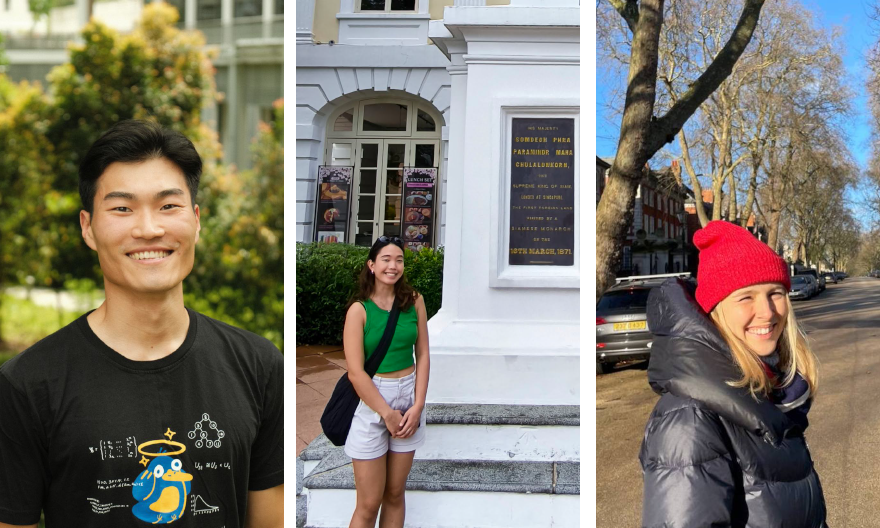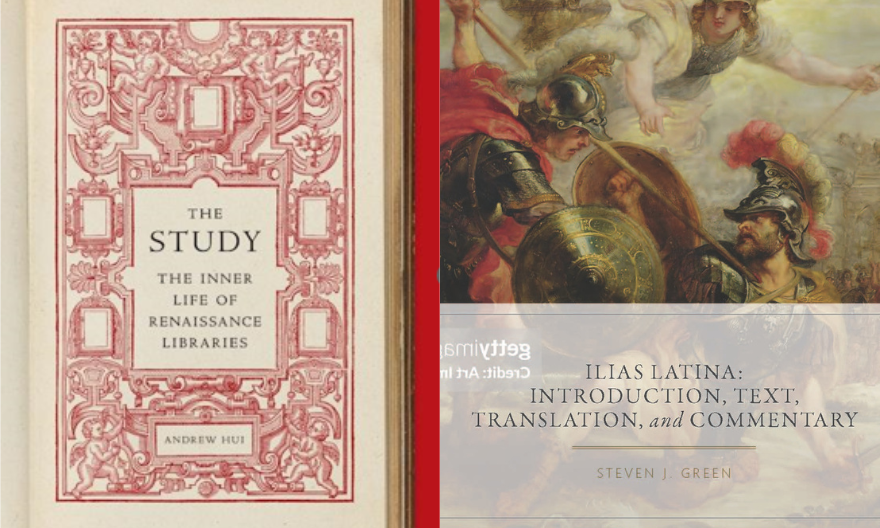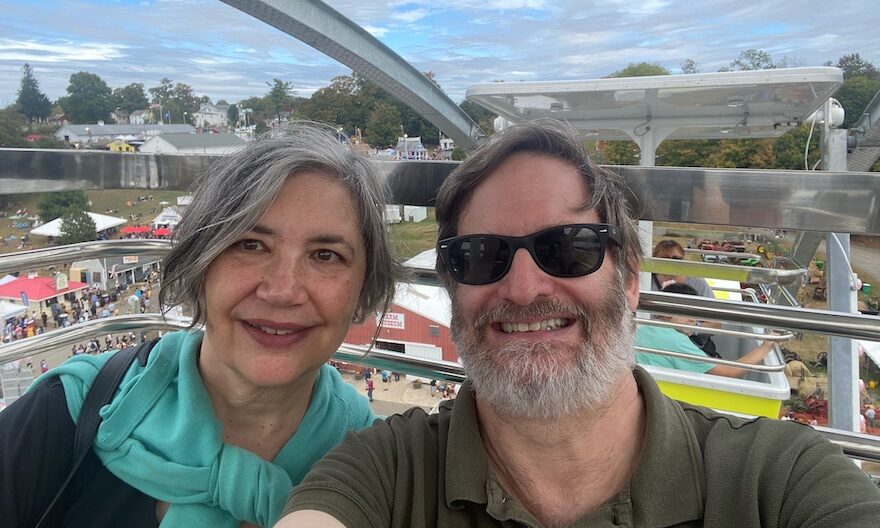Exploring the human condition: The intersection of psychology and literature
Yale-NUS students learn about the field of medical humanities
 Students with Professor Jeanette Ickovics (centre, seated). Photo provided by Glenn Chua (Class of 2025) for Yale-NUS College.
Students with Professor Jeanette Ickovics (centre, seated). Photo provided by Glenn Chua (Class of 2025) for Yale-NUS College.
Many courses at Yale-NUS College draw upon interdisciplinary fields of study, blending multiple modes of thought to create an intellectually enriching and exciting experience for students. One example of this approach is the course The Human Condition: Psychology & Health in Literature. Taught by Visiting Professor Jeanette Ickovics from the Yale School of Public Health, the class delved into existential questions surrounding themes of self and identity, interpersonal relationships, coping with illness, and resilience. Through an array of literary forms — including novels, essays, plays, and visual media — students explored what truly characterises the human condition.
Students appreciated the broad and diverse selection of texts offered by the course. “I loved all the material that we read,” shared Jaime Ng (Class 2025). “The wide variety of genres really helped showcase the complex and multifaceted nature of the human experience. At times, it felt less like a class and more like a fun book club, where I was able to discuss the texts’ themes and draw connections to my own life.”
In addition to literary readings, students watched films as part of the course – The Namesake and American Symphony. The former is a drama about a family of immigrants attempting to adjust to life in the United States, while the latter is a biographical documentary starring musician John Batiste, chronicling both his music career and his wife’s struggles with leukemia. These screenings added depth to the themes discussed in class by visually depicting the intersections of identity, cultural heritage, and emotional resilience in the face of life’s challenges. “I really enjoyed both screenings, especially American Symphony,” said Yelani S Bopitiya (Class of 2025). “It was so powerful to be able to watch the journey of someone going through cancer treatment and to empathise with what their loved ones were feeling as well. It speaks to the importance of having a strong support system to get us through difficult times.”
The course also brought students outside the classroom for experiential learning. In October, students attended the Singapore Medical Humanities Conference 2024, where they participated in a workshop titled ‘The Power of Story: A Narrative Medicine Experience’. Learning alongside doctors and other healthcare professionals, this session involved close-readings of poetry and paintings, encouraging students to develop narrative competence and gain greater appreciation for every patient’s unique story.
On the workshop, Karel Nareswara (Class of 2025) said, “As a literature major, I found it fascinating to hear medical professionals engage in the practice of close reading, which is something they might not be very familiar with. Still, I appreciated seeing how literature – even as a field that is often considered less practical – can be applied in real-world settings.”
Reflecting on the course as a whole, Tan Kai Xuan (Class of 2025) said, “It was really fun and interesting to go to class every week and figure out together how we can read literature through the lens of psychology, and see psychology’s very real manifestation through literature! By the end of the module, it became really easy to see where the two intersect and how they could make the application of each other more meaningful. I think that this is an interdisciplinary study that can really touch people’s hearts and help us learn a lot more about each other and ourselves.”




